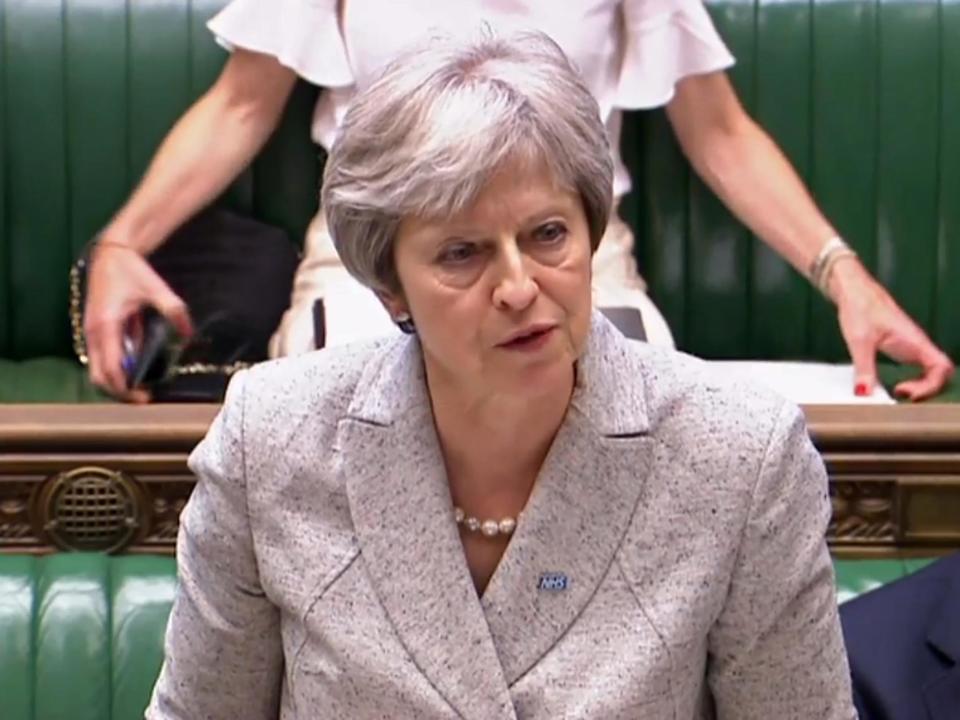Brexit: Theresa May poised to hand Brexiteers a victory by accepting changes to customs legislation
Theresa May is poised to hand pro-hard Brexit MPs a victory by accepting a raft of changes to customs legislation in votes tonight.
The European Research Group – led by Jacob Rees-Mogg – has put down four amendments to the taxation bill, as it bids to force the prime minister back to a hard Brexit stance.
Her spokesman signalled a climbdown when he told reporters: “We will consider the amendments and set out our position in due course.”
It appeared that the government might accept all four amendments – in the belief that doing so would not wreck the Chequers plan for tariffs, even before it reaches Brussels.
The most significant would prevent the UK collecting duties for the EU unless Brussels agreed reciprocal arrangements, which the Brexiteers believe would kill off the prospect.
But a government source suggested this would not conflict with the Chequers proposal, dubbed the facilitated customs arrangement (FCA).
By early on Monday, it had been signed by 11 Tory MPs including former leader Iain Duncan Smith, former cabinet minister Priti Patel and Mr Rees-Mogg.
Although, with Labour opposed, the government did not face defeat, the clash set up a show of strength which the ERG hopes to exploit and the prime minister is desperate to avoid.
If the number of rebels tops 48, it would exceed the tally required to force a vote of no confidence in Ms May’s leadership of the Conservative party.
However, some of the prime minister’s Tory opponents believe any no-confidence vote must be called by Wednesday this week if it is to be staged before parliament breaks up for the summer on Tuesday next week.
The other three ERG amendments to the taxation (cross border trade) bill – formerly known as the customs bill – appear easier for the government to accept.
One would require the UK to have a separate VAT regime from the EU, while another would require the government to table primary legislation if it wishes to keep Britain in a customs union.
The last would enshrine in law that there cannot be a customs border down the Irish Sea – a border Ms May has repeatedly ruled out anyway.
Nevertheless, accepting the last amendment would be seen as provocative by Brussels which has floated the idea as a “backstop” measure, needed to secure a withdrawal agreement.
There are suggestions that the ERG could agree to pull the amendment requiring reciprocity on tariff collection if the government accepts the other three.
But Steve Baker, who quit last week as a Brexit minister in protest at the Chequers plan and who is “whipping” Tories for the ERG, insisted that was “wrong”.
Earlier, Greg Clark, the business secretary, urged pro-Brexit Tory colleagues to recognise that the bill was “essential” and must not be obstructed.
He had appeared to rule out accepting the amendments, saying: “No. The bill is an important part of preparing for the world after Brexit and I would have thought that all colleagues would respect the fact that we need to get those preparations in place.”

 Yahoo News
Yahoo News 

